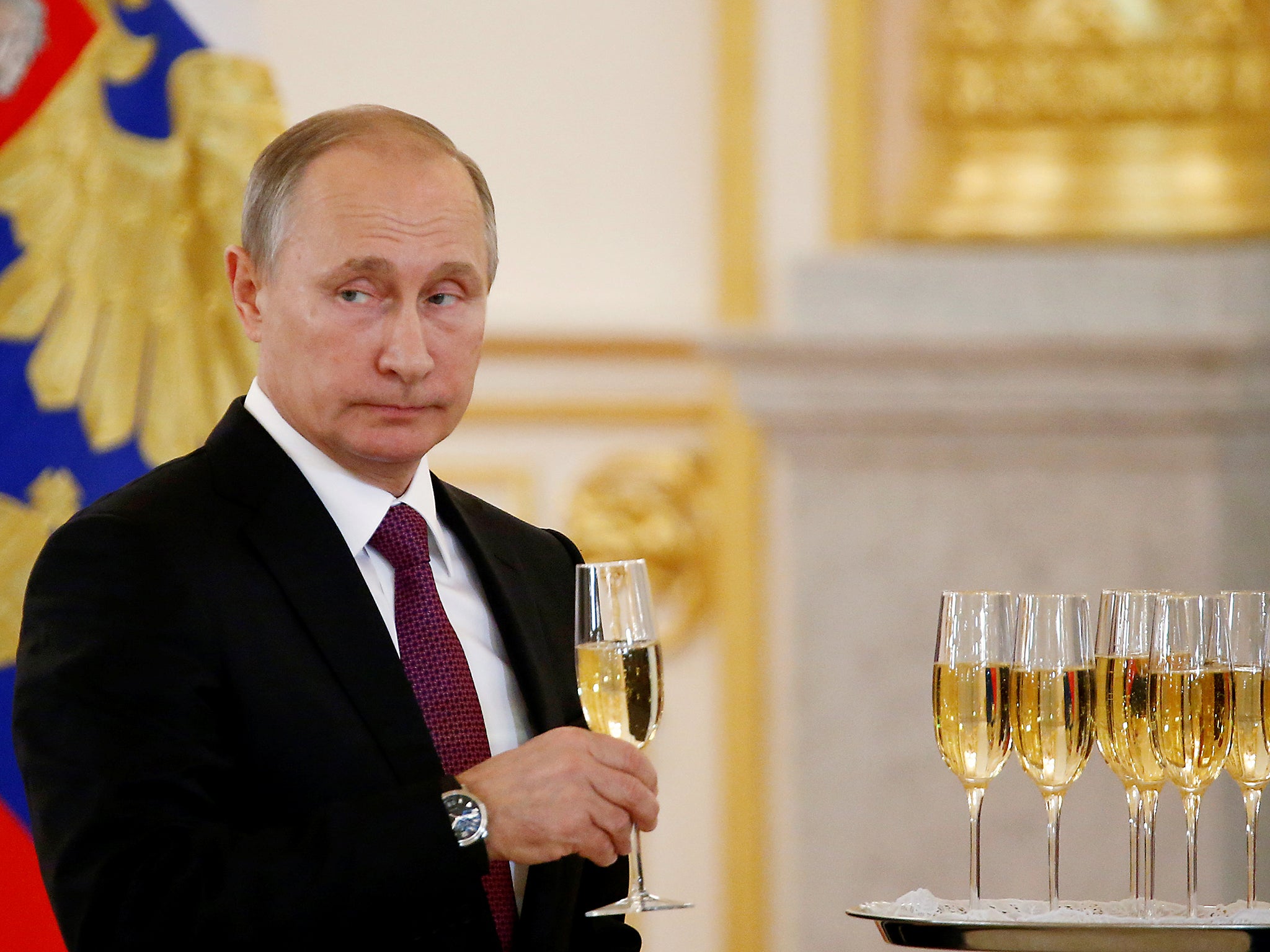Russia has withdrawn from the ICC – but with Donald Trump in the White House, it makes no difference
The accusations and recriminations over Russia’s involvement in Ukraine and Syria have been made immaterial by current events


There was no particular surprise about the timing of Russia’s announcement that it was cutting links with the International Criminal Court. It came a day after the organisation’s chief prosecutor had classified the Kremlin’s annexation of the Crimea as an occupation and held that Russia was militarily involved in the separatist conflict in the Ukraine. The move also comes amid repeated charges from human rights organisations and Western governments that Russia has committed war crimes in its bombing campaign in Syria and demands for the court (the ICC) to launch an investigation.
However, the Kremlin’s decision puts further pressure on the ICC and calls its future as a viable body into question. Russia was a signatory to the setting up of the ICC but never became full member. The US, China and India – all major international players – are also in the same category, having refused to ratify the Rome statute which established the court.
Three full members – Burundi, Gambia and South Africa – have withdrawn from the ICC in the last two months. Uganda, Kenya and Namibia, meanwhile, have stated that they are also considering pulling out. The African states accuse the organisation of racism; of the 10 investigations going on at present, nine are in Africa.
Vladimir Putin declared that the ICC was “one-sided and inefficient” and had failed to live up to its obligations to the international community. Was Ukraine as an issue (and we must assume it was one behind the Russian action) being treated in a “one-sided and inefficient” way by the court?
A referendum was held in Crimea by Moscow on whether the territory wanted to join the Russian Federation and the answer was to do so by an overwhelming margin. However, to those of us reporting from there at the time, it was clear that the figures had reflected the fact that the vast majority of Ukrainian and Tartar communities had boycotted the polls because Crimea was already occupied – Russia’s ‘little green men’ were very much in charge – and they were convinced that the result would have been fixed.
Moscow has always insisted that it had not sent forces into the Donbas during the separatist campaign. We met Russian troops on the ground during the fighting – they claimed to be volunteers on leave from their army. One needs, however, to remember at this point that the Ukrainian forces also had their share of foreign volunteers, many of them with extreme right-wing views.
But the accusations and recriminations involving the ICC and Russia over Ukraine and Syria have, to a large extent, been made immaterial by current events. The election of Donald Trump will mean that Moscow is unlikely to face anything like the criticism over its actions in either of the countries in the future as it had done from the Obama administration – accusations which had fuelled the demand for an investigation by the court.
The US also faces a possible ICC inquiry after the chief prosecutor, Fato Bensouda, claimed that American forces and the CIA may have committed war crimes by their brutal treatment of detainees in Afghanistan. But Washington has ensured that it will not end up in the dock. The ICC treaty was signed by Bill Clinton, but his successor George W Bush revoked the agreement. The new president, Donald Trump, has stated that water-boarding of prisoners is justified.
About 120 states, including Britain, remain members of the ICC. With the trend in geopolitics towards resurgent nationalism and the chances of hardline leaders coming to power raised after Trump’s election, the mood is likely to swing further away from allowing international legal organisations to hold nation states to account.
Join our commenting forum
Join thought-provoking conversations, follow other Independent readers and see their replies
Comments
Bookmark popover
Removed from bookmarks